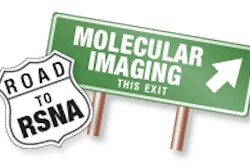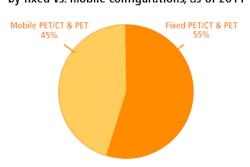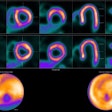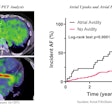Monday, November 28 | 9:50 a.m.-10:00 a.m. | MSVM21-07 | Arie Crown Theater
Low-dose molecular breast imaging (MBI) is just as sensitive as conventional-dose MBI in detecting cancers in dense breast tissue mammography misses, according to researchers at the Mayo Clinic in Rochester, MN.In previous studies, Dr. Deborah Rhodes and colleagues demonstrated that adding MBI -- using an injection of 20 mCi of technetium-99m sestamibi -- to screening mammography increased breast cancer detection in dense breasts from 27% with mammography alone to 91% with the combination. For this study, they sought to determine whether using lower doses for the MBI exam would still be as effective.
The study included 600 women with dense breast tissue who presented for digital screening mammography between June 2010 and March 2011. The women had both digital mammography and MBI screening; the MBI exam was done with 8-mCi injections of Tc-99m sestamibi and dual-head cadmium zinc telluride (CZT) detectors. Rhodes' team took the images in dynamic frames so they could generate 4-mCi-equivalent images as well.
Of the 600 women, nine cancers were diagnosed in nine patients, and MBI detected cancer in eight of these (89%), while mammography detected none. Of the mammographically missed cancers detected by MBI, three were ductal carcinoma in situ (DCIS), one was tubular cancer, two were invasive ductal carcinoma, and two were invasive lobular carcinoma. All of these MBI-detected cancers were visible on the 4-mCi-equivalent images, Rhodes team found, suggesting that ongoing dose-reduction work will allow MBI screening to be performed at an effective dose comparable to screening mammography.





















